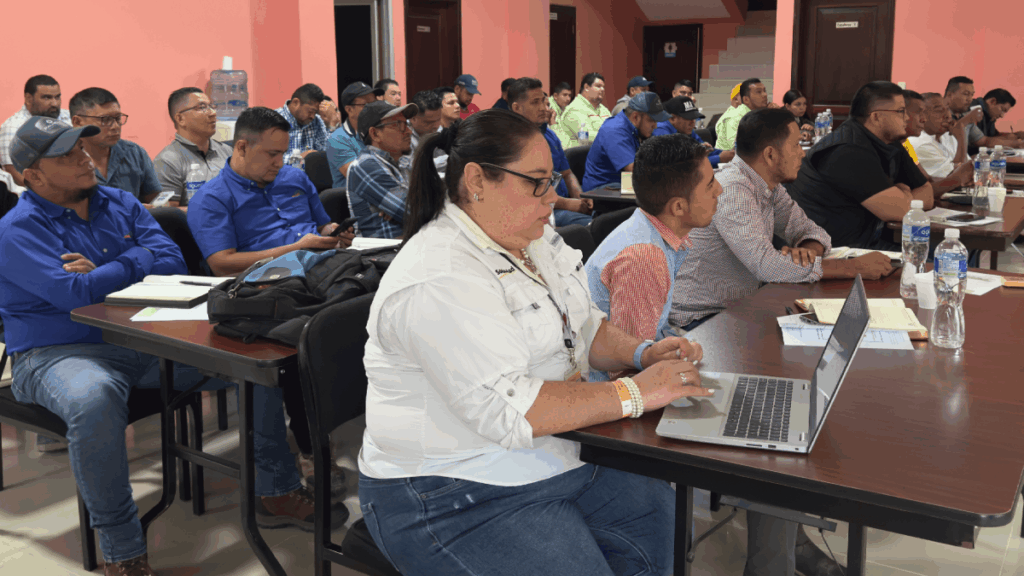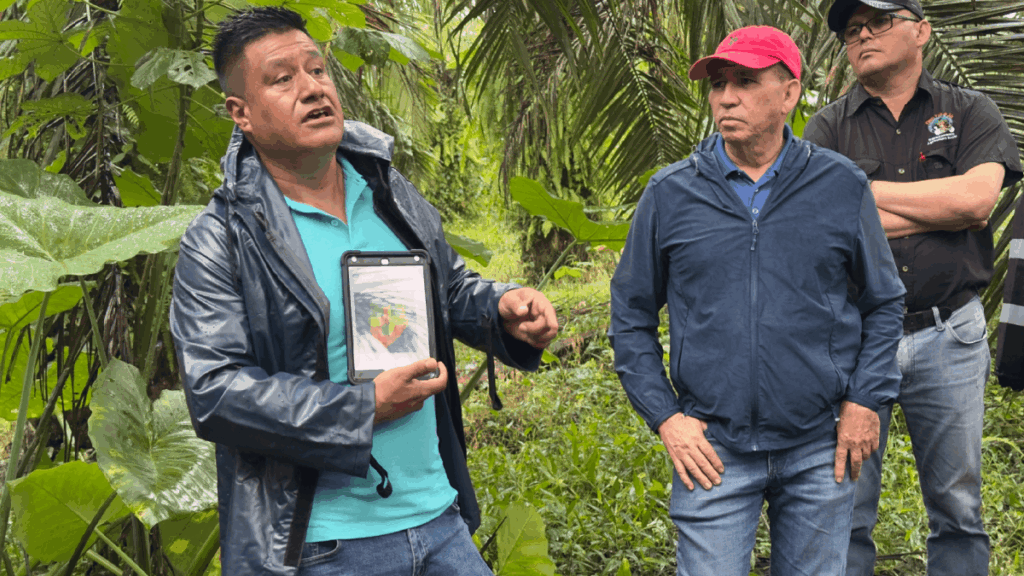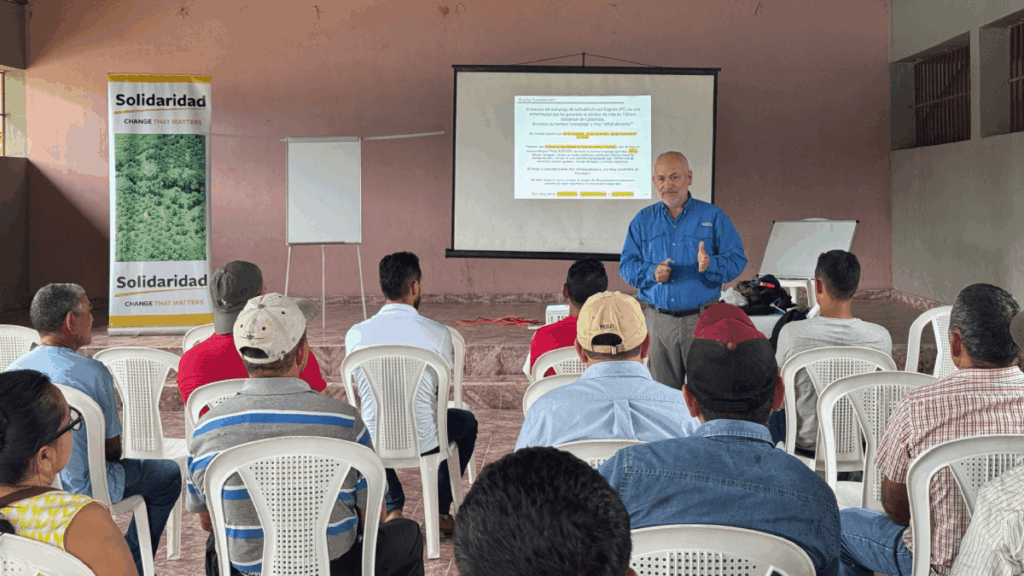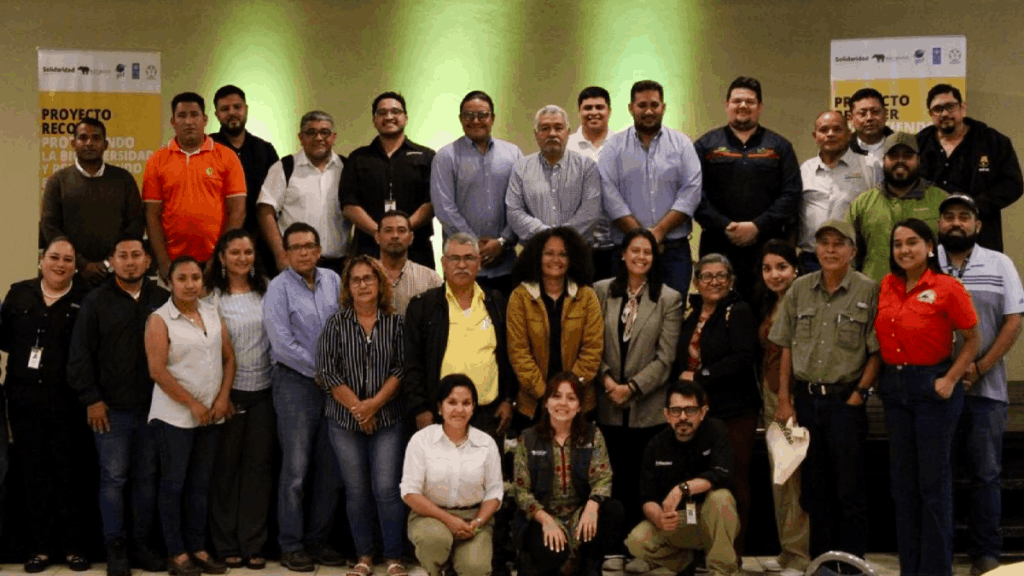The EUDR marks a dramatic shift in how global supply chains operate. And while the the EU debates how and when to move forward with the regulations, small-scale farmers and companies around the world are getting prepared. In Honduras, a comprehensive assessment conducted by Solidaridad and the National Federation of Oil Palm Producer and Extractor Associations of Honduras (FENAPALMAH) has provided critical insights that have informed the development of an action plan and long-term strategy to strengthen the country’s palm oil sector.
Assessing EUDR preparedness in the Honduran palm sector
The EUDR is built on three non-negotiable pillars:
- The product must not originate from land deforested after December 31, 2020.
- It must comply with national legislation.
- It must be validated with a complete, georeferenced traceability system.
The assessment of cooperatives, associations and agro-industries conducted by Solidardidad and FENAPALMAH identified several common challenges to achieving EUDR compliance. Key findings included the need for:
- Developing robust due diligence systems to assess risks, ensure compliance and apply corrective measures.
- Implementing product traceability systems from the farm to the final consumer to improve transparency across the supply chain.
- Adopting geospatial monitoring platforms with official validation for accurate verification of deforestation status.
- Supporting producers to clarify land tenure issues and update licenses to professionalize the sector, reduce risks and ensure long-term sustainability.
- Addressing technical gaps at every level, from producers to executives, to boost innovation, productivity and resilience across the sector.
Closing these gaps is crucial for maintaining access to European markets and protecting the livelihoods of thousands of small- and medium-scale producers. Beyond the regulatory challenges, oil palm farmers are facing environmental threats to productivity in Bud Rot, a disease that is threatening farms in the region.

Closing the gap, designing a strategic response
Stakeholders have developed an action plan to address the technical, organizational and environmental challenges identified in the assessment. The strategy was consists of five main pillars:
- Organizational Governance: Reactivating internal structures and forming dedicated EUDR Commissions to guide progress.
- Georeferencing and Traceability: Conducting a census of members, georeferencing all plots and validating them through reliable, accessible platforms to demonstrate zero deforestation.
- Legal Compliance: Identifying pending legal requirements and supporting producers in formalizing procedures.
- Due Diligence: Creating and implementing practical, locally adapted tools to manage and assess risks.
- Communication and Awareness: Offering tailored workshops and materials to build a culture of compliance at every level of the sector.
This plan lays the groundwork for progressive adaptation, proving that an organized system is the first step towards long-term commercial sustainability.
“Solidaridad’s support has been fundamental for FENAPALMAH. It has allowed us to strengthen our institutional capabilities, drive sustainability processes and generate tools that contribute to the competitiveness of the palm sector. Their work has not only delivered tangible results but has also sown a long-term vision focused on inclusion, innovation and producer resilience.”
Allan Maradiaga, Executive Director of FENAPALMAH

A Three-Tiered Strategy to respond to the EUDR
To date, the focus of our work has been on strengthening governance. EUDR Commissions have been formed and the critical governance structures have been reactivated. The leadership and decision-making capacity is critical for implementing technical systems and corrective actions.

At the same time, advances in geospatial analysis and validation are addressing the credibility challenges in the sector. Partnerships with credible actors to plot polygons and conduct geospatial analyses provide the irrefutable evidence required by the EU to prove that areas are free from post-2020 deforestation. Meeting this standard is critical as non-compliance automatically blocks market access.
Once these foundations are in place, the strategy will shift to building systems and skills needed for compliance. One of the most important initiatives is the UNPALA (Atlantic Coast Palm Growers Union) traceability system, designed to link georeferenced production data with the flow of products. This ensures that specific lots can be tracked and declared compliant with EUDR regulations. Without traceability, georeferencing is isolated and commercially useless.
Along with this, ongoing specialized training addresses knowledge gaps. This ensures the adoption and feasibility of proposed solutions that help producers build skills in traceability, due diligence and geospatial tools.

The final step is focused on resolving structural issues that no single organization can overcome alone, such as land tenure and official validation. Collaboration with key government entities like ICF, IP and SERNA creates an institutional support network that strengthens continuity and legitimacy. Simultaneously, reviewing and updating due diligence protocols, and developing tools for risk assessment and compliance declarations help to standardize procedures. Accurate data, full traceability and well-trained personnel are critical elements for a credible and effective system.
Based on this work with extractors, producer associations, guilds and government entities, Solidaridad has become a key partner working to streamline traceability, sustainability and legality efforts. This work is guiding the Honduran palm sector toward a more transparent, sustainable and globally competitive future.

Looking Ahead: Consolidation and Scalability
This effort has strengthened the ability of local institutions to face new international standards.
“The next steps focus on consolidating the advances and scaling the strategy across the entire Honduran palm sector. This involves the full implementation of the traceability system, mass official validation of plots, resolution of legal bottlenecks through continuous dialogue and the internalization of due diligence protocols into daily operations. The ultimate goal is to build a more resilient, formalized and sustainable sector.”
María Duran, Manager, Solidaridad in Central America

